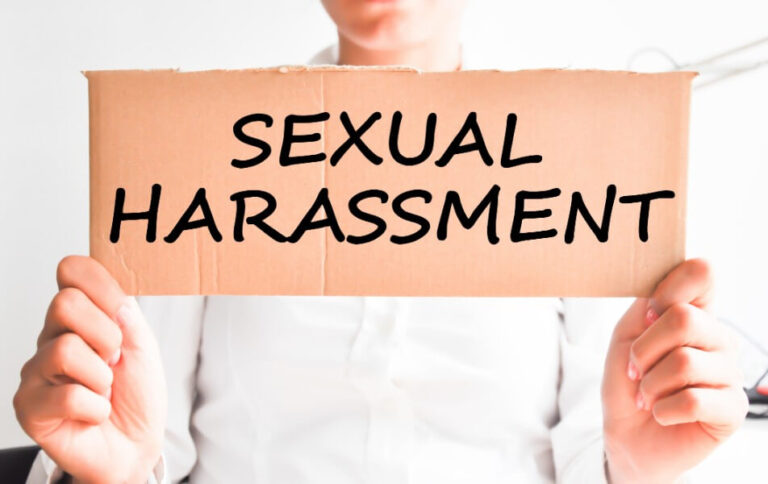Sexual Harassment Training: What Are The Arizona Laws?
November 22, 2019

The state of Arizona doesn’t currently have any sexual harassment training requirements. Of course, that doesn’t mean that it is without merit. Sexual harassment is a big issue facing working professionals and businesses across the nation, and training aimed at education and prevention is one of the best ways to address the issue. Read on to learn more about Arizona sexual harassment:
What is Sexual Harassment?
The federal government agency, the Equal Employment Opportunity Commission (EEOC), enforces anti-discrimination laws, which includes sexual harassment at work. The guidelines defining sexual harassment by the commission include the following:
- Any physical or verbal conduct that is of a sexual nature.
- Requests from one person to another asking for sexual favors.
- Any unwelcome sexual advances.
When combined with the following situations, the above can be considered sexual harassment:
- When objecting to or putting up with the conduct outlined above is explicitly or implicitly a condition or term of employment.
- When objecting to the conduct outlined above alters employment decisions, such as hiring or promotions.
- When the conduct outlined above creates an offensive or hostile work environment that interferes with the victim’s performance at work.
The first situations are referred to as quid pro quo harassment. This type of harassment is easy to identify. Simply put, an employee’s job depends on them giving in to some sort of sexual demand or conduct. The third situation can be more confusing and difficult to identify. Courts often define the third situation as an offensive or hostile work environment.
What Sexual Harassment Is Not
Sexual harassment is not simply teasing or isolated incidents that are not serious in nature. Harassment must be unwelcome to be considered illegal. However, just because a woman tries to laugh off inappropriate jokes in order to keep her job, doesn’t mean she is welcoming the behavior. She can still claim sexual harassment and likely prove it, especially if she had expressed displeasure with the behavior and it has still continued.
When Sexual Harassment Training is Recommended
As mentioned above, sexual harassment training is not legally required in the state of Arizona. However, it is recommended by the Sexual Harassment Class by the AJ Novick Group, Inc. in the following situations:
- A business owner or organization head wishes to mitigate any and all potential liabilities involving sexual harassment.
- An employer has had problems with harassment, either sexual or otherwise, in the past.
- An organization is an educational institute that must meet Title IX training requirements.
- A business has employees working in states that do require sexual harassment training.
More Information About Sexual Harassment Cases
The following is more information about sexual harassment in the workplace:
Do Sexual Harassment Cases Always Involve a Man Harassing a Woman?
Sexual harassment doesn’t always include a man harassing a woman. In some cases, women can be the aggressor and the man the victim. Neither party should seemingly welcome obscene remarks only to change their tune later and claim harassment. Sexual harassment can even take place from one man to another and one woman to another.
How do Employers Protect Themselves From Sexual Harassment?
Employers should protect their businesses from sexual harassment litigation by making sure the following steps are completed:
- Employees should receive training on the type of conduct that is and isn’t acceptable with regard to sexual harassment.
- Employees should be encouraged to sign a company sexual harassment policy guideline.
- Each employee should have more than one contact person in case the contact person becomes the harasser being accused.
- Each employee should be encouraged to issue a complaint if they feel they experienced sexual harassment. This helps the company identify employees whose actions could lead to sexual harassment cases.
Why Should Employers Have Sexual Harassment Procedures?
It’s vital for employers to come up with a procedure addressing proper reporting of sexual harassment because a court will not find employers who have done so guilty of permitting a hostile work environment. All employees should be aware of the procedure and how to report a sexual harassment issue. This protects the employer who then cannot be held responsible if the person chooses to forego the company policy.
What Steps Should be Taken After Making a Company Sexual Harassment Policy?
Unfortunately, employers cannot escape the risk of liability just by issuing a prevention policy and educating employees on its presence. However, if the following elements are included, it can help an employer greatly if a case is brought against them. In addition, with the following elements in place, a lawsuit is less likely to be necessary in the first place:
- Employers should make sure anyone who has been designated as the go-to person for sexual harassment complaints is responsible enough and well respected enough to be viewed as receptive. They should also be a person who will follow up with any and all accusations.
- Business owners should understand that additional training as mentioned above is sometimes needed.
- Employers should periodically publicize their harassment policy to ensure that all human resource administrators and front-line supervisors know how to address any complaints.
How Employers Should Handle a Sexual Harassment Accusation?
Employers should investigate any information that indicates sexual harassment has taken place and then take corrective action, quickly. Employers should speak directly to the person who filed the complaint and with the harasser. They should also speak to anyone who witnessed the harassment. All steps should be well-documented along the way. Above all, employers should take any and all sexual harassment complaints seriously and encourage a prompt resolution.
Sexual harassment has no place in a healthy workplace environment. All business owners and employers should keep the above information in mind to ensure their workplace promotes a safe environment, encouraging productivity and employee satisfaction.
Hear From Our Customers
Read what our clients say about our Payroll and Human Resource services.
